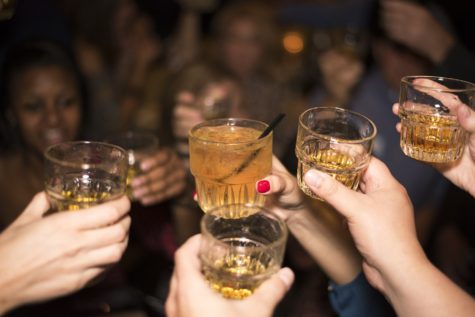LAWRENCE, Kansas — In college, social drinking can turn into a dangerous situation quickly. Universities have instituted a wide range of punishments and other consequences to keep students from drinking themselves out of their campuses. But, according to a new study, shame and embarrassment in front of one’s friends — especially for women — is a more effective deterrent than any formal punishment implemented.
College problem drinking, usually characterized by binge drinking to the point that one’s studies and academic performance begins to suffer, affects millions of college students in the United States every school year. So if students are able to sacrifice their grades, what is it can’t they sacrifice? Researchers at Kansas University believe, for some students, one’s social circle and reputation among peers may be more powerful than their academic prowess.

“In this case, it seems that peer relationships, especially friendships but also casual or even what we might think of as pre-professional relationships, are more important from the standpoint of moderating drinking behavior than the threat of formal punishment, or even being kicked out of school,” says Margaret Kelley, an associate professor of American Studies, in a news release. “The ideas of day-to-day embarrassment or feeling basic social shame were more of a deterrent.”
Kelley’s findings are based on a phone survey of 508 students at a large, American university in the southwest. The university had implemented a dry campus policy a year before the survey took place.
The majority of students surveyed said they still drank alcohol or they planned to violate the alcohol ban sometime in the future. A third of the male students surveyed said they abstained from alcohol during the time period, with 44% of women saying they abstained.
While most respondents said they were largely undeterred by the threat of police involvement, many reported that feelings of shame and embarrassment, especially from the perception of their peers, reduced their inclination to violate the university’s dry campus policy.
“I think it’s because people try to make sense of someone else’s experience by attributing their problems to personal failings, and if they themselves drink too much, they are likely to self-blame in similar ways,” says Kelley.
Humiliation seemed to be a more frightening punishment for female respondents, but the results showed that being shamed in general stoked more fear among students than typical university sanctions.
Kelley says the research could lead to more nuanced problem drinking intervention plans at universities throughout the United States. She says college officials should focus on getting students more connected with each other at positive social events where fun can still be had without the need for booze.
The full study was published in The Journal of Drug Issues.

Comments
Comments are closed.